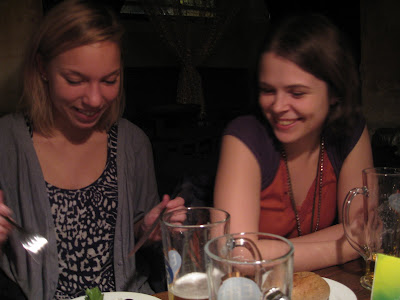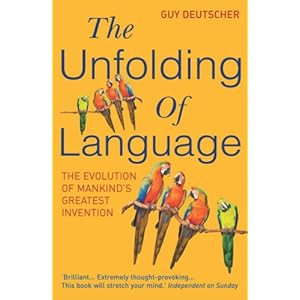
Isaac Bashevis Singer, who received the Nobel Prize of Literature in 1978.
The book I chose to read after The World According to Garp is A Little Boy in Search of God/A Young Man in Search of Love by Isaac Bashevis Singer. I visited a secondhand store the other day with my mother, and as I was looking for more books by John Irving I happened to see this book, also by an author that I have always seen the name of but that I have never actually read. I didn't buy the book since I'm very restrictive these days when it comes to book buying, but what did I see as I was looking through my mother's books for a new book to read later that same day? Yep, exactly.
I wasn't exactly enamoured with this book to begin with, but as I am approaching the end of it I find myself liking it more and more.

This image is the one I get in my head when reading. There are these very conflicting thoughts and characters that appear all the time in the narrative, and I find it very hard to get a grip on the essence of the book, but I kind of like it. It's somehow fleeting. I am surprised by how quickly Singer can make my sympathies swing around, all within just a couple of pages, leaving me a little bit confused as to what I am supposed to believe, if I sympathize with him or not, if he's a decent guy or a spineless excuse for a man.
Basically, it's Singer's autobiography. Or part of it; it's not a very long book, he just describes his youth and his encounter with religion and love in the time after the first world war in Warsaw.
Funnily enough, this book is also about an author, however this time the author actually exists - and contrary to the last author I read about (the fictive Garp), this one proclaims himself an antifeminist since modern women make fools out of honest men! He can't resist femmes fatales, at the same time as he despises them and wishes he could find himself a chaste Jewish girl to marry. He sees the contradictions himself. The more I think about it, the more clever I find the book. There are lots of little things where I can nod in agreement, especially when it's a question of literature or monogamy. You will just have to read yourselves to find out exactly what, since I myself hate to know what a book is about before I start reading it I also do not like to talk in detail about books with people who have not read them.
And I just love how I find the same ideas in different books. In this one, an editor tells Singer that Yiddish authors have an obligation to write books that strengthen the position of the Jewish community. I have read the exact same thing somewhere else, about another specific group, but I can't remember where...
Singer, however, questions that a work of art that serves such purposes can actually have an artistic value. I have read this exact same counter argument as well, but where? Gah, annoying...
Well! I kind of got curious about Yiddish literature from reading this book. Any suggestions?



































